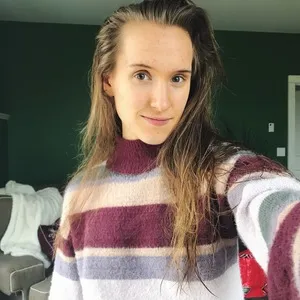The following article contains information regarding eating disorders. Reader discretion is advised.
Eating disorders are one of the most physically and emotionally draining experiences an individual can go through in their life. If you have personally dealt with an eating disorder, you might be able to empathize with this statement. But if you haven’t, there’s little insight into the extent to which eating disorders can disrupt daily life functions.
These life functions include friendships, relationships, and romantic connections. Mental illness can push people toward isolation, but building connections with others and seeking help is a key part of recovery. Furthermore, telling others about one’s eating disorder requires a degree of vulnerability that one may not feel comfortable exposing themselves to. A friend or partner may not have sought professional help in diagnosing their behavior yet; this might further push the envelope of behavior minimization.
As a partner or a friend of someone with disordered eating behaviors, you provide a key element of support and insight. Here are some of my tips of navigating disordered eating in your relationships.
Don’t be the “food police.”
“Should you eat that?” “You’re eating all that?” “That’s all you’re gonna eat?” “I would never eat that.”
These phrases are deeply problematic- whether you realize that or not. While your intent may be the genuine concern for the wellbeing of others, it comes off as being deeply impolite and condescending. Eating disorders have a tendency to strip people of their autonomy, so any extension of that oppression doesn’t make anyone feel any better. Instead, offer praise and warmth in these kinds of situations. If your partner/friend says they aren’t hungry, then trust their body. If you notice they’re having a particularly hard day, acknowledge their efforts and move on.
Try not to make dates or hang-outs all about food.
Sometimes you might want to go out and get dinner, coffee, or ice cream with your significant other or friend. While these ideas are very sweet (literally and figuratively), they might make your partner feel uncomfortable. One way I’ve found to ease this process is to make a list of date/hang-out ideas and choose from there. You can write them on popsicle sticks and put them in a jar in case you’e not feeling inventive!
Some of my favorite non-food date/hang ideas include movie nights, hikes, DIY crafts, or day-cations.
Communicate candidly.
Communicating your mental health needs to another person is never easy, especially during episodic periods. Although you might struggle to interpret what your partner is feeling, it is almost certainly more challenging for that person to communicate their needs to you. I find that conversations about mental health are best done when the environment is equalized- meaning everyone feels comfortable and free to ask questions. Speak in a way that does not condemn the other person nor incites a fear/judgement response.
Give compliments and affirmations based on character rather than physical appearance.
Eating disorders trigger a hyperawareness of body image, so many comments regarding physical appearance can further exacerbate poor self-esteem (even if that was far from the intention). My favorite affirmations include: You look radiant today! I appreciate how you handle vulnerability- I know this experience isn’t easy. Thank you for being someone who I can count on.
Don’t draw attention to behaviors.
It can be hard NOT to focus on certain behaviors, especially when they are, unfortunately, and integral part of one’s existence. As an individual with bulimia, I understand how purge cycles not only zap willpower, energy, and motivation, but also make someone slowly sicker with every episode. Talking with friends and family is one of the only constants and reprieves I have from my eating disorder, so talking about purging is one of the last things I want to do. Building relationships is also key to recovery for individuals with an eating disorder, so it’s vital to provide emotional and physical reprieve to your loved one.
Episodes and bad days will undoubtedly happen. Learning to coexist and manage these behaviors is key to recovery. One way you can practice this with your friend/partner is, after an episode, saying: I know that x behavior was a challenge today, but let’s put that behind us and move forward. In short, any reminder that the individual is not their illness is essential.
Concern is warranted.
Remember when I said not to focus on certain behaviors? Well, that only applies to an extent. Eating disorders have the highest rate of mortality among mental illnesses, so early detection and management is essential.
Keep contact information for parents, other friends, and doctors handy should emergencies arise (you should have this information regardless of mental illness). Voice your concerns and advocate for your friend/partner if needed.
Be patient.
“Learning curve” is an understatement when it comes to coping with and managing an eating disorder. You will have your patience tested. You might feel uncomfortable at times. You might feel like you want to shake your partner/friend to the core and say “you’re so much better than this!” Healing is a process, and one inevitably filled with tricky bends. Let your compassion and love shine through, and you will help your friend/partner navigate through these treacherous waters.
You can learn more about Sara’s experience with an eating disorder here.


